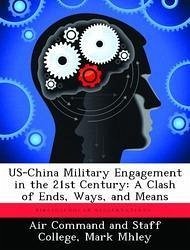This research paper examines the current framework of military engagement between the US and China in order to determine its effectiveness in meeting US national strategic and military objectives, and to recommend a strategy and framework better suited to meeting those objectives. The research begins by reviewing the history of the US-China military relationship since 1972, and breaks it into four phases in order to discuss recurring themes in each. The paper then analyzes current US-China relations from each nation's perspective and then each nation's interest in pursuing military engagement with the other. After reviewing the current engagement activities in the US framework, this research offers an assessment of engagement from both the American and Chinese perspective. From these perspectives, recommendations for improving the framework are developed.This research concludes that some aspects of engagement are furthering US national objectives in form, and fewer in substance, and US policy makers believe it is primarily Chinese political sensitivities that are to blame. China's perspective on engagement, however, reveals a conflict between each nation's perspectives on the end states of the relationship, the value of transparency in reaching them, and the preferred construct of framework. It is this conflict of perspectives that prevents engagement from effectively reaching US objectives.This research suggests that a strategy for engagement must address the Chinese concepts of mutual understanding and trust and must develop strategic dialogue that addresses China's sensitivities. It also recommends a number of ways to improve the planning and execution of engagement activities to make them more effective.
Hinweis: Dieser Artikel kann nur an eine deutsche Lieferadresse ausgeliefert werden.
Hinweis: Dieser Artikel kann nur an eine deutsche Lieferadresse ausgeliefert werden.








